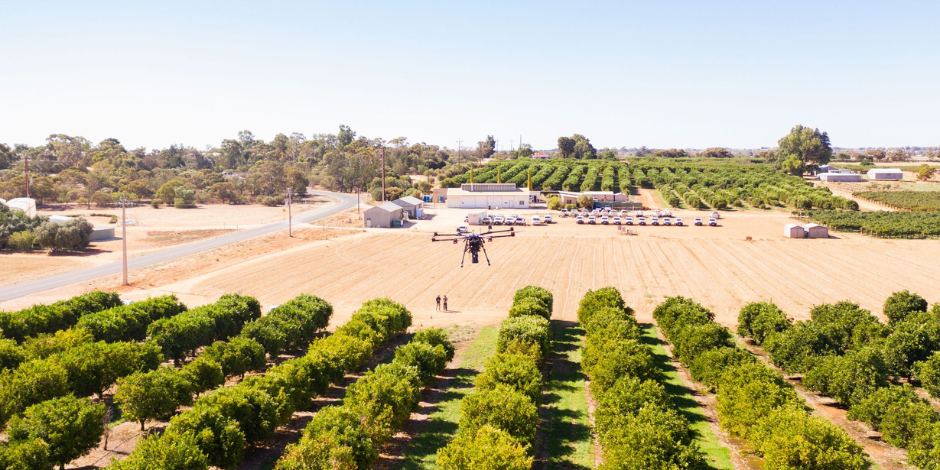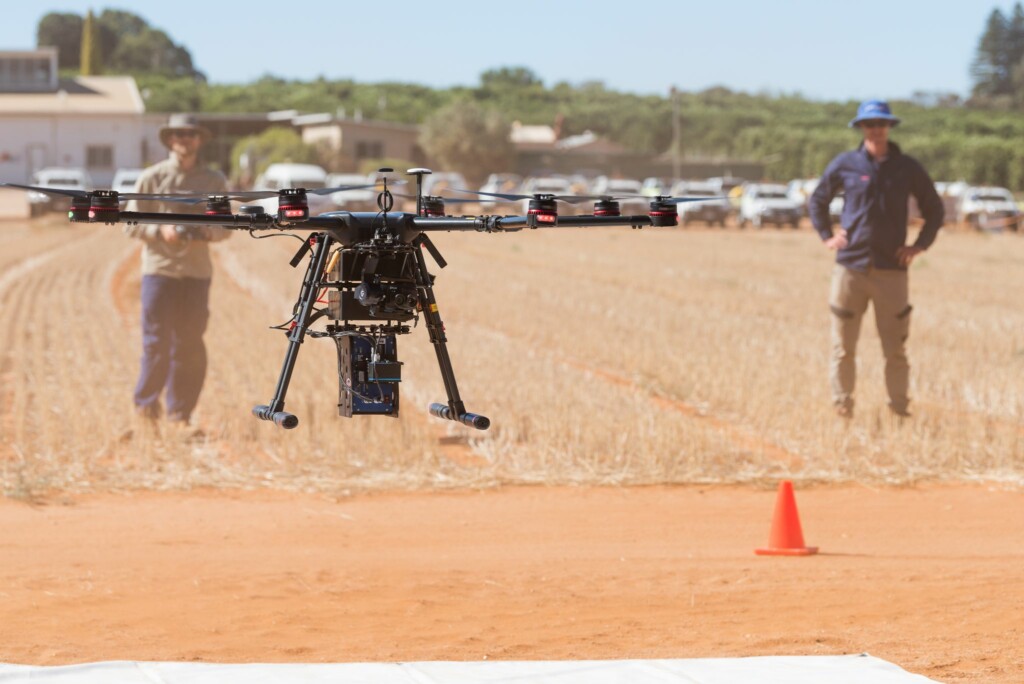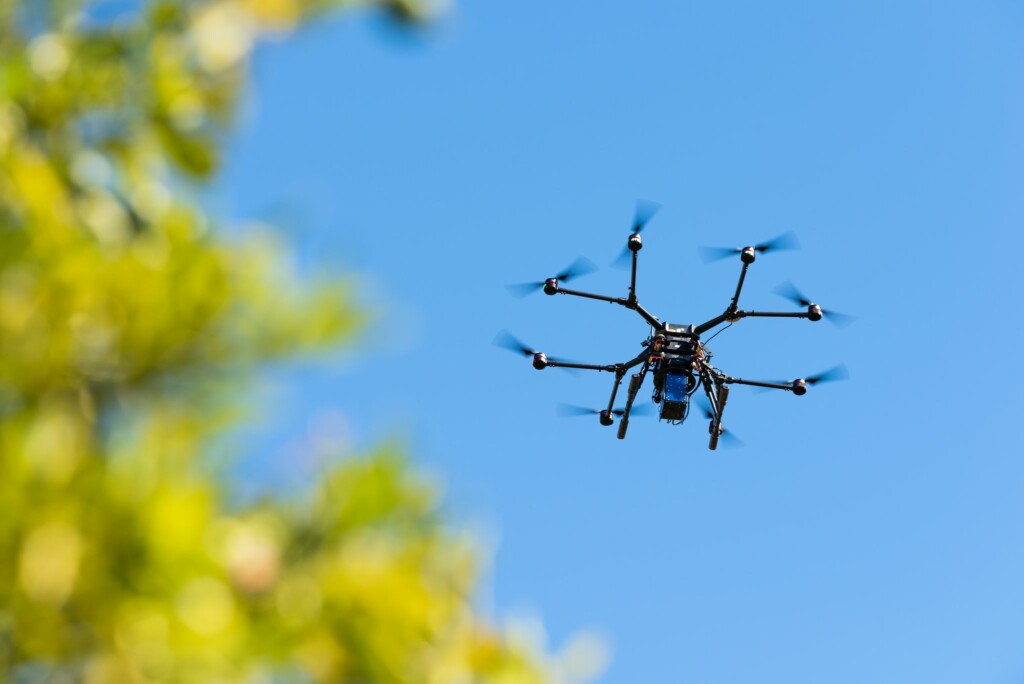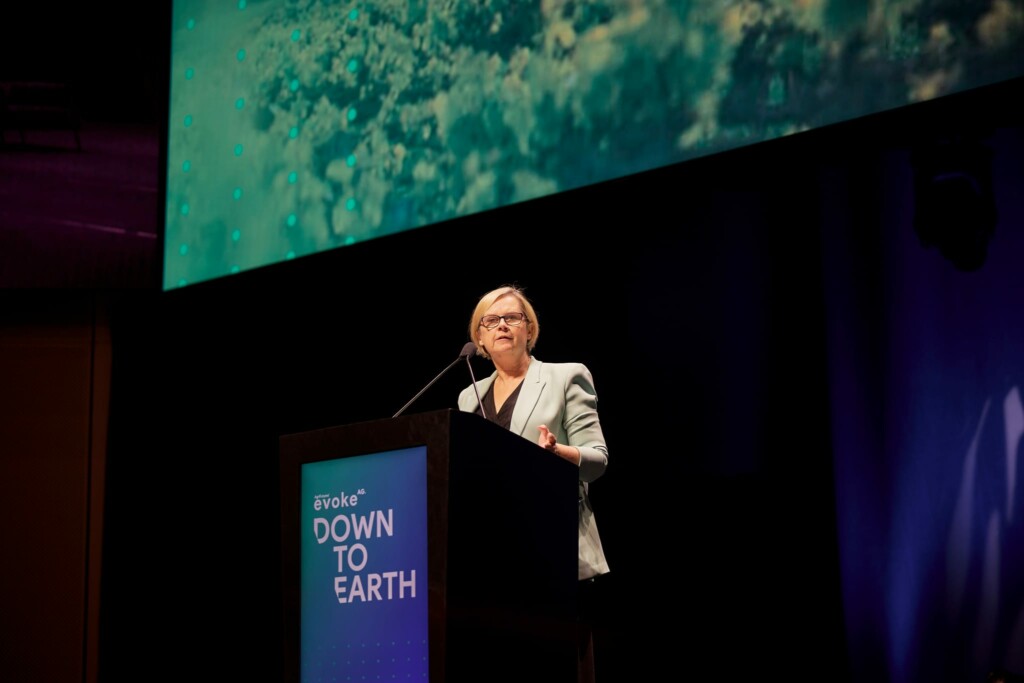South Australia’s agritech hubs promote innovation and interaction
A thriving ecosystem of AgTech hubs featuring start-up advice for entrepreneurs, technology testbeds, and demonstration farms is ensuring South Australia builds a strong reputation as a global leader in AgTech. Off the back of evokeAG. 2023 Dr Ben Baghurst explains why South Australia is the “state of Innovation”.

Chosen as the venue for evokeAG. 2023 held on 21-22 February 2023, South Australia has shrugged off agriculture’s mantle as Australia’s least digitised industry and instigated a network of innovation districts to accelerate new ideas through its AgTech Strategic Plan.
Central to the plan is the Department of Primary Industries and Regions’ establishment of AgTech hubs in the South East, Riverland, Barossa, Eyre Peninsula and Kangaroo Island areas, representing a broad range of climate and production systems.
Within these hubs, expert AgTech start-up advice supports entrepreneurs to develop their capability to solve critical industry challenges and facilitates access to innovation precincts, programs and government support, including:
- Agritech Meetup South Australia
- Lot Fourteen
- Tonsley Innovation District
- Waite Research Precinct
- ThincLab
- Department for Industry, Innovation and Science
- Department for Trade and Investment
Technology testbeds support proof-of-concept assessment of promising prototypes and validation of innovative AgTech that has been developed overseas, but is yet to prove its worth in Australian production systems.
A series of AgTech demonstration farms allows primary producers to get hands-on and test out high-tech kit that can help them tackle everyday farming challenges.
RELATED: South Australian paddock-to-beverage traceability project takes off
Innovation ecosystem ‘easy to navigate’
Andy Chambers, Managing Director of AirborneLogic, says the company chose South Australia as its base because of the easy to navigate innovation ecosystem and the opportunity to form valuable partnerships with researchers, investors, and most importantly, end-users.
AirborneLogic uses drone-mounted hyperspectral and infra-red sensors and data analytics to assess crops, vegetation and infrastructure and provide farmers, private companies and government agencies with agricultural and environmental solutions.

“Imagery has great potential to assist farmers to identify problems well before they would normally see them, which improves their ability to take action and increase farm gross margin,” said Mr Chambers.
“We were able to rapidly demonstrate the value of our system through the AgTech hubs, where we received start-up advice and support, demonstrated our tech on farms, took part in field days, tours and workshops, and joined ThincLab Waite, Adelaide’s first AgTech, food innovation and wine-focused incubator.
AgTech cluster develops from interaction between providers
“One of the unexpected benefits was the interaction with other AgTech companies in the hubs. An AgTech cluster developed organically and is proving invaluable as we explore mutually beneficial integration and inter-operability of our services with other technology providers,” Mr Chambers added.

Elements of the AgTech ecosystem in South Australia are purposely co-located to provide two-way marketplaces for technology developers and farmers.
This ensures the adoption of AgTech is enhanced by:
- Cultivating and nurturing the regional AgTech start-up community.
- Enhancing interaction between farmers and developers to ensure fit-for-purpose products.
- Demonstrating and validating AgTech, including documenting and communicating improvements in farm physical and financial performance.
- Identifying industry challenges suitable for an AgTech solution.
The next frontier is to provide agricultural advisors the tools and training to further unlock the value of AgTech for their clients by assessing their adoption readiness and capability, identifying the on-farm challenges that technology can solve, and developing AgTech adoption plans.
RELATED: What makes South Australia the state of innovation?
Collaboration more valuable than competition, says Minister
South Australia’s Minister for Primary Industries and Regional Development, Clare Scriven MLC, says the state is emerging as the destination of choice for AgTech companies to go to market.
“They’re coming here to develop, test, refine, validate, commercialise and ultimately export AgTech of the highest quality and value,” said Ms Scriven.
RELATED: Deep Planet’s journey into the Australian wine tech market
“We’ve recognised that a collaborative mindset is more valuable than a competitive one, as the market for AgTech is global. Our agricultural environment is perfect as a testbed for technologies for international markets due to tough agricultural conditions, a counter-cyclical seasonal pattern to the Northern Hemisphere, and often similar supply chain models.
“The game changer has been the connections we’ve facilitated in South Australia between researchers, entrepreneurs, product developers, investors and agribusinesses that help them interact within the AgTech supply chain, form productive relationships, and take their ideas to the world.”

Andy agrees and says the choice of South Australia as the venue for evokeAG. 2023 event was “the icing on the cake”.
“The event played a key role in helping cement our relationship with the global AgTech community as we scale our business and put powerful technology-based tools in the hands of farmers,” said Mr Chambers.
The Government of South Australia was the evokeAG. 2023 Host City Partner. Learn more about South Australia’s initiatives to accelerate new ideas and its AgTech Strategic Plan.
